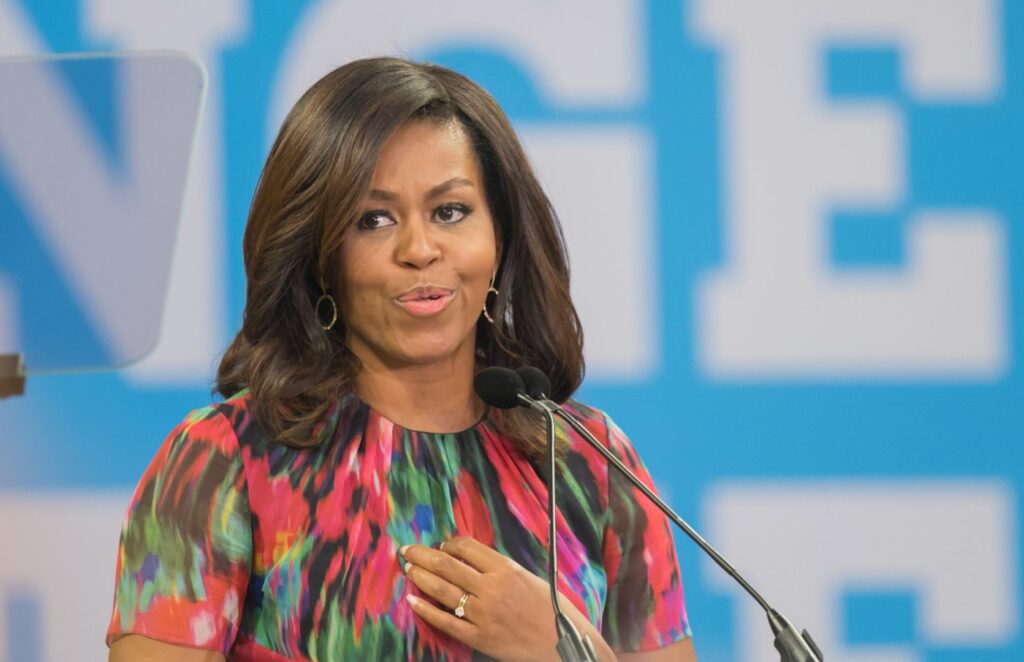The convergence of fashion and politics has become a significant domain for cultural expression and representation, particularly led by Black women who are transforming the political arena with their purposeful style decisions. As the 2025 political cycle progresses, these fashion choices embody more than mere aesthetics; they serve as a conscious approach to elevate Black voices and honor cultural heritage within influential spaces.
The Transformation of Political Fashion
Over the last decade, the interplay between political engagement and personal style has undergone substantial evolution. Black women in leadership roles have transcended traditional norms regarding political attire, carving out a new narrative of leadership that integrates policy knowledge with cultural authenticity.
Beyond Traditional Attire
Modern political fashion has progressed from the standard of neutral suits to a sophisticated language of communication. This evolution signifies a broader transformation in how political figures connect with their communities and articulate their identities through their wardrobe selections.
Pioneers of Change
The current landscape of political fashion has been notably influenced by prominent figures who grasp the significance of visual representation. Michelle Obama’s era as First Lady initiated a critical change in the fashion approach of political figures, setting a standard for marrying sophistication with cultural relevance.
Intentional Style Selections
The choices made by Black women politicians regarding designers and styles are often rich in significance. Such selections not only uplift emerging Black talent within the fashion industry but also convey powerful messages about representation and accessibility in both the realms of politics and fashion.
Influence on the Fashion Industry
The representation of Black designers within political contexts has spurred substantial shifts in the fashion sector. This heightened visibility has created pathways for emerging talents and challenged entrenched power dynamics within the fashion industry.
The impact reaches beyond individual designers and encourages larger discussions surrounding diversity in fashion, encompassing everything from runway representation to leadership positions. These developments highlight an increasing acknowledgment of the purchasing power and cultural influence held by Black consumers and creators.
Cultural Significance
The fashion choices of Black women in politics strike a chord within communities that have faced historical marginalization in both political and fashion spheres. These selections act as empowering declarations about belonging and authority in spaces that have traditionally been exclusive.
Influencing Future Generations
Emerging professionals and aspiring leaders increasingly see these role models as benchmarks for navigating their careers while staying true to their cultural roots. This influence transcends politics, impacting corporate and creative industries alike.
Modern Representation
Vice President Kamala Harris’s approach to political fashion has set new standards for women in executive capacities. Her deliberate choice of American designers, especially those from underrepresented backgrounds, exemplifies how fashion can serve as a vehicle for economic empowerment.
White House Press Secretary Karine Jean-Pierre has further broadened this narrative, delivering a fresh perspective in political dialogue through her conscientious wardrobe choices. Her presence reinforces the ongoing tradition of utilizing fashion to enhance cultural visibility.
Transforming the Industry
The repercussions of these fashion choices extend well beyond personal style. Black designers endorsed by political figures often witness significant advancements in their enterprises, paving the way for growth and enhanced visibility in the expansive fashion market.
This dynamic has prompted major retailers and fashion houses to rethink their strategies concerning diversity and inclusion, resulting in increased opportunities for Black designers and creators throughout the industry. The impacts of these shifts continue to reform the fashion landscape.
The progression of fashion among Black women leaders is emblematic of broader societal shifts regarding representation and empowerment. Their choices illustrate how personal style can act as a formidable instrument for cultural expression and social progress.
These fashion choices continue to resonate within both political and cultural domains, encouraging new generations to regard their style as an extension of their professional and cultural identities. This transformation hints at a future where fashion in politics serves not only as personal expression but also as a vehicle for societal change.
As we advance, the impact of Black women politicians on fashion is poised to amplify, challenging conventional narratives around power dressing while forging new avenues for cultural expression in political contexts. Their decisions exemplify how fashion can simultaneously be a personal statement and a significant force for social transformation.
The ongoing evolution of political fashion among Black women leaders indicates a burgeoning future where cultural authenticity and professional credibility are interwoven rather than opposing forces in leadership. This change signifies a pivotal development in how power and identity are articulated within American political life.
Looking ahead, the implications of these fashion choices are likely to continue reshaping both political and fashion frameworks, fostering fresh opportunities for expression and representation. This trajectory hints at a future where fashion transcends personal preference to become a potent instrument for social reform and cultural validation.


